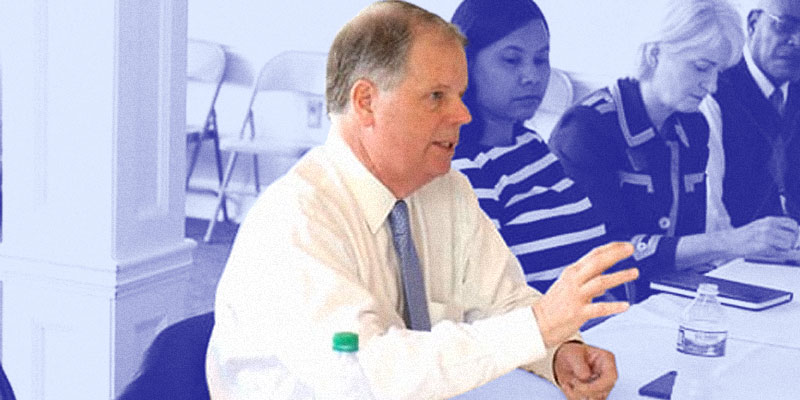A recent lengthy and, at times, quite flattering profile of Sen. Doug Jones by FiveThirtyEight’s Clare Malone offers little breaking news – aside from the interesting revelation that Jones believes he would have beaten Roy Moore by a wider margin had sexual misconduct allegations not been raised against Moore.
The story is worth reading, though, because it offers Alabama conservatives an opportunity to look at how an Alabama progressive evaluates their political conservatism.
Jones tells Malone about Alabama conservatives, within the context of a constituent asking him about why the Affordable Care Act is a good thing: “They see the federal government as not being good and don’t really fully appreciate the fact that their public officials need those federal dollars to help their roads, to help their schools, to help save their hospital.”
Many conservatives certainly do think as Jones describes but a more proper conservative position, in my view, is seeing many of the current functions of the federal government as not being good.
Sen. Marco Rubio recently sat down with David Axelrod, who worked for President Obama, where he made that critical distinction when Axelrod asked him about running for the Senate as a Tea Party candidate in 2010.
“There was a feeling that government had overreached in the issues of healthcare, stimulus spending and the like, but… I’ve always said, including during that campaign, that I’m not an anarchist. There is a role for government to play.”
Rubio continues, “I think it’s over-regulation that you’re against but in terms of these transitions, there is a role for government to play.”
In both Jones’s and Axelrod’s framing, there is little distinction in these questions of public policy between the primary institution of government and the actions of government. Therefore, when a conservative criticizes something like Medicaid expansion, his criticism becomes framed by progressives as a criticism of government itself, that he’s anti-government, though he really may be opposed to government in that sense.
“True conservatism,” as Rubio frames it, fears the reaches of social democracy. A true conservative fears what Alexis de Toxqueville imagined – indeed prophesied – in 1840, that the modern welfare state would develop into:
“a society consumed with such a malaise, in which government, compassionate toward its subjects, provides for their security, foresees and supplies their necessities, facilitates their pleasures, manages their principal concerns, directs their industry, makes rules for their testaments, and divides their inheritances… it does not destroy anything, but prevents much being born.”
Some of these have become realities more so than others, but conservatives could certainly find that in some sense, they have all been born out, and to our detriment.
Jones, perhaps without meaning to, reminds us with his characterization that the whole of politics is a conversation about, and an effectuation of, government’s role in our lives. That’s what we’re ultimately fighting about.
@jeremywbeaman is a contributing writer for Yellowhammer News
Don’t miss out! Subscribe today to have Alabama’s leading headlines delivered to your inbox.
